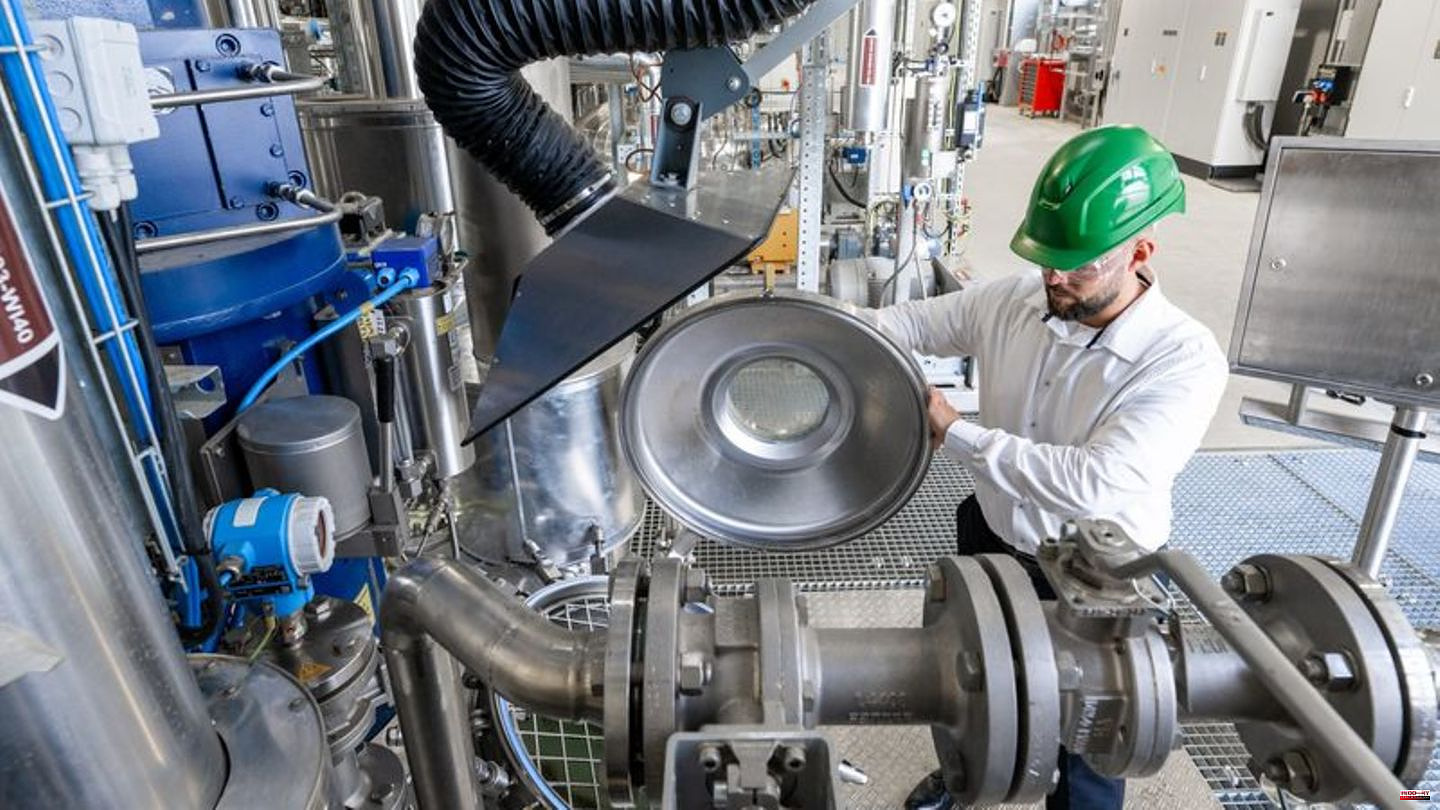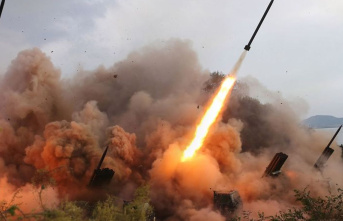In the midst of the gas crisis and record inflation, unions and employers have agreed on significantly more money for 580,000 employees in the chemical and pharmaceutical industries. On the third day of their collective bargaining in Wiesbaden, they decided on tax-free special payments of around 3,000 euros and permanent wage increases of 3.25 percent in two stages.
While the employers' association BAVC referred to flexibility clauses that give companies freedom, the trade union IG BCE spoke of the "highest wage increase in the chemical industry for more than 30 years". The conclusion could be a signal for other collective bargaining with millions affected.
The chemical and pharmaceutical employees will receive the two tabular wage increases from January 2023 and January 2024. In addition, there will be one-off payments as tax- and duty-free "inflation money" - they too are to be paid out in two steps of 1500 euros each: in January 2023 and in January at the latest 2024. The federal government had made the option of tax-free one-off payments of up to 3000 euros, which the taxpayer co-finances, possible in the fight against inflation. The term of the collective bargaining agreement, which applies to 1,900 companies, is 20 months.
"With this result, we keep the balance between the competitiveness of the company and the interests of our employees," said BAVC President Kai Beckmann. The employers, who had repeatedly referred to the gas crisis as a burden, pushed through a flexibility clause in addition to the comparatively long term: companies with economic problems can postpone the two wage increases by up to three months. This does not apply to the special payment. Chief negotiator Hans Oberschulte spoke of a "crisis-oriented conclusion".
Special relief for lower wage groups
The IG BCE emphasized that the tax and social security-free special payments relieved the lower wage groups in the industry in particular. For the employees, the package means a net relief of an average of 12.94 percent over the term. In a "historic exceptional situation" with unprecedented inflation rates and the threat of recession, the social partners have taken responsibility, said the chairman of the IG BCE, Michael Vassiliadis. Amicable agreements in collective bargaining have a long tradition in the industry: the last strike was in 1971.
As early as April, IG BCE and BAVC had agreed on a partial deal as a bridge due to the uncertainty surrounding the Ukraine war and inflation, which expires at the end of October: A one-time payment of 1,400 euros. Originally, the IG BCE had called for wage increases above the rate of inflation. But with the energy crisis, the inflation rate has since picked up and reached 10 percent in September - the highest level in more than 70 years.
High gas consumption
Since then, the gas crisis has also escalated, which hits the chemical industry particularly hard. The third largest German industrial sector after car and mechanical engineering is the largest gas consumer with a share of 15 percent. It requires gas as an energy source, but also as a raw material for the production of plastic and fertilizer, for example. The industry can only pass gas prices on to a limited extent. After a slump in earnings, the chemical company BASF has already announced an austerity program to reduce annual costs outside of production by 500 million euros. There is a risk of job cuts at the Ludwigshafen headquarters.
Possible signaling effect for other sectors
It is true that the chemical and pharmaceutical industry has financial leeway with record sales of around 220 billion euros last year. Vassiliadis also sees a signal effect in the deal that goes beyond the industry. Collective bargaining is a particular focus due to inflation. While the unions want to push through whopping wage increases, the economy is warning of an overload.
Other collective bargaining talks are correspondingly difficult. The negotiations for around 3.8 million employees in the metal and electrical industry are stalled. Here the IG Metall demands a wage increase of 8 percent. Difficult talks are also imminent in the negotiations for around 2.5 million public sector employees, which begin at the beginning of next year. Verdi and the civil servants' association demand an increase of 10.5 percent. In view of such figures, some economists see the danger of a wage-price spiral that could fuel inflation. The degree in chemistry with special payments could now be a model.









